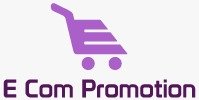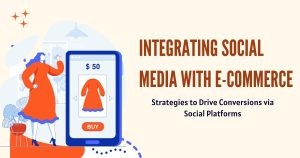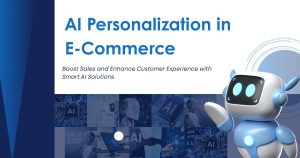Why E-Commerce Businesses Need an Email Marketing Agency

E-commerce email marketing is hard to manage alone. Specialized agencies bring advanced segmentation, automation, and optimization that boost engagement and revenue. They help growing businesses turn email into a reliable, long-term sales driver.
Your online store generates decent traffic, but converting visitors into loyal customers remains frustratingly elusive. You’ve tried DIY email campaigns, experimented with templates, and even hired a freelancer or two. Yet your email open rates hover around 15%, click-through rates barely reach 2%, and abandoned cart recovery feels like throwing messages into a void.
This scenario plays out across thousands of e-commerce businesses daily. While email marketing boasts an average ROI of $42 for every dollar spent, most online retailers struggle to tap into this potential. The difference between mediocre results and exceptional performance often comes down to specialized expertise—the kind that dedicated e-commerce email marketing agencies provide.
Understanding when and why to partner with an email marketing agency can transform your customer relationships and revenue streams. These partnerships go beyond basic newsletter management, encompassing strategic campaign development, advanced automation, and data-driven optimization that converts browsers into buyers.
The Complex Landscape of E-commerce Email Marketing

E-commerce email marketing differs significantly from traditional business-to-business or content marketing emails. Online shoppers expect personalized product recommendations, timely promotional offers, and seamless integration between email content and their shopping experience. Creating this level of sophistication requires technical expertise, creative talent, and deep understanding of consumer psychology.
Modern e-commerce email strategies incorporate behavioral triggers, dynamic content personalization, and multi-channel integration. A customer who abandons their cart should receive a different message sequence than someone who recently made their first purchase. Seasonal shoppers require distinct approaches compared to loyal repeat customers. Managing these complex customer journeys manually becomes overwhelming as businesses scale.
Email marketing agencies specializing in e-commerce understand these nuances. They bring proven frameworks for segmentation, automation workflows that respond to customer behavior in real-time, and creative strategies that drive engagement across different product categories and customer lifecycle stages.
Strategic Benefits of Professional Email Marketing Partnership

Advanced Segmentation and Personalization
Professional agencies implement sophisticated segmentation strategies that go far beyond basic demographic splits. They analyze purchase history, browsing behavior, engagement patterns, and seasonal preferences to create highly targeted customer groups. This granular approach enables personalized messaging that resonates with individual shopping motivations.
Advanced personalization includes dynamic product recommendations, location-based offers, and content that adapts based on previous interactions. Agencies have access to tools and technologies that automatically populate emails with relevant products, adjust messaging tone based on customer value, and optimize send times for individual recipients.
Comprehensive Automation Workflows
Effective e-commerce email marketing relies heavily on automation sequences that nurture customers throughout their buying journey. Professional agencies design and implement complex workflows that include welcome series for new subscribers, abandoned cart recovery sequences, post-purchase follow-ups, and re-engagement campaigns for inactive customers.
These automated systems work continuously, responding to customer actions with relevant, timely messages. A well-designed automation strategy can handle dozens of different customer scenarios without manual intervention, ensuring consistent communication while freeing up internal resources for other business priorities. For a full overview, see our ultimate guide to email marketing in e-commerce.
Data Analysis and Performance Optimization
Email marketing agencies provide sophisticated analytics and reporting that extends beyond basic open and click rates. They track revenue attribution, customer lifetime value impact, and conversion funnel performance. This data-driven approach enables continuous optimization of subject lines, content strategy, send timing, and campaign structure.
Regular testing and optimization are crucial for maintaining email marketing effectiveness. Agencies conduct systematic A/B tests on various campaign elements, analyze results across different customer segments, and implement improvements based on statistical significance rather than assumptions. Our e-commerce digital marketing guide covers similar optimization approaches.
When to Consider Agency Partnership

Growing Customer Base and Complexity
As e-commerce businesses grow, their email marketing needs become increasingly complex. Managing hundreds or thousands of customers requires sophisticated tools and strategies that individual team members may lack time or expertise to implement effectively. When your customer database reaches several thousand subscribers, professional management becomes essential for maximizing engagement and revenue.
Growing product catalogs also increase email marketing complexity. Businesses with multiple product categories, seasonal inventory, and diverse customer preferences need advanced segmentation and personalization capabilities that agencies can provide more efficiently than in-house teams.
Limited Internal Resources and Expertise
Many e-commerce businesses lack dedicated marketing personnel with specialized email expertise. Business owners and general marketing staff often juggle multiple responsibilities, making it difficult to develop and execute sophisticated email strategies. Partnering with an agency provides immediate access to specialized skills without the overhead of hiring and training internal staff.
Technical implementation represents another significant challenge. Modern email marketing platforms require integration with e-commerce systems, customer data platforms, and analytics tools. Agencies bring established technical expertise and vendor relationships that streamline implementation and ongoing management. Explore mastering e-commerce online marketing to understand these integrations better.
Revenue Growth Plateaus
When email marketing performance stagnates despite consistent effort, professional intervention can identify and address underlying issues. Agencies bring fresh perspectives, industry best practices, and advanced strategies that can break through performance plateaus. They also provide objective analysis of current strategies, identifying opportunities that internal teams might overlook. For practical examples, see e-commerce marketing examples that actually work.
Selecting the Right Email Marketing Agency

E-commerce Specialization and Track Record
Not all email marketing agencies understand the unique challenges and opportunities within e-commerce. Look for agencies with demonstrated experience in online retail, proven track records with businesses similar to yours, and case studies that showcase measurable results. E-commerce-focused agencies understand product catalog integration, inventory management implications, and seasonal campaign strategies.
Evaluate potential agencies based on their client portfolio, retention rates, and specific e-commerce achievements. Ask for detailed case studies that include before-and-after performance metrics, campaign examples, and explanations of strategic approaches used to achieve results.
Technical Capabilities and Integration Expertise
Modern e-commerce email marketing requires seamless integration between multiple systems and platforms. Ensure potential agency partners have experience with your specific e-commerce platform, customer relationship management system, and analytics tools. They should also demonstrate proficiency with advanced features like dynamic content, behavioral triggers, and cross-channel campaign coordination.
Technical expertise is equally crucial. Agencies should understand segmentation, automation platforms, dynamic content, and deliverability—much like understanding the deeper principles in how brands make emotional connections.
Communication and Reporting Standards
Successful agency partnerships require clear communication, regular reporting, and collaborative strategic planning. Evaluate potential partners based on their communication processes, reporting frequency and detail, and willingness to involve your team in strategic discussions. The best agencies function as extensions of your marketing team rather than isolated vendors.
Maximizing Agency Partnership Value
Clear Goal Setting and Performance Metrics
Successful agency partnerships begin with clearly defined objectives and success metrics. Establish specific, measurable goals for revenue attribution, customer acquisition costs, lifetime value improvement, and engagement metrics. Regular performance reviews ensure campaigns remain aligned with broader business objectives.
Provide agencies with comprehensive context about your business goals, seasonal patterns, product priorities, and customer insights. The more information agencies have about your business, the better they can develop targeted strategies that support overall growth objectives.
Collaborative Strategy Development
The most successful e-commerce email marketing campaigns result from collaborative strategy development between agencies and internal teams. Your team brings deep product knowledge, customer insights, and business context that agencies need to create effective campaigns. Agencies contribute technical expertise, industry best practices, and creative perspectives.
Regular strategy sessions, campaign planning meetings, and performance reviews foster productive collaboration. Maintain open communication about business changes, product launches, promotional plans, and customer feedback that might influence email marketing strategy.
Creative Storytelling in E-commerce Emails
Beyond automation and data analysis, creative storytelling is a critical factor in engaging e-commerce audiences. Agencies excel at crafting narratives that resonate with specific customer segments, combining visuals, copy, and product recommendations into cohesive, persuasive messages.
Effective storytelling transforms transactional emails into experiences that connect emotionally with customers. For example, a lifestyle brand can use emails to narrate the journey behind a product, showcase real customer stories, or highlight sustainability initiatives. These creative campaigns not only increase open and click-through rates but also enhance brand loyalty and repeat purchases. Professional agencies understand how to balance creativity with data-driven optimization to ensure stories drive tangible results.
Navigating Compliance and Deliverability Challenges
Compliance and deliverability are often overlooked but crucial aspects of e-commerce email marketing. Mismanagement can result in emails being marked as spam, damaging sender reputation, and reducing engagement. Agencies bring expertise in email authentication protocols such as SPF, DKIM, and DMARC, ensuring messages reach recipients’ inboxes reliably.
Furthermore, agencies maintain best practices in list hygiene, segmentation, and consent management, helping businesses comply with GDPR, CAN-SPAM, and other privacy regulations. They also monitor engagement metrics to proactively identify deliverability issues and make adjustments. By managing compliance and deliverability expertly, agencies allow businesses to focus on creative and strategic aspects without risking email performance or legal repercussions.
Scaling Email Marketing With Advanced Technology
E-commerce email marketing at scale requires sophisticated technology platforms and tools that can handle segmentation, personalization, and automation seamlessly. Agencies often have access to enterprise-level platforms that integrate with e-commerce stores, CRMs, and analytics dashboards.
These tools allow for dynamic content insertion, AI-powered product recommendations, predictive sending times, and detailed campaign performance tracking. As businesses expand their customer base or product catalog, agency-managed technology ensures that email marketing remains efficient, personalized, and highly targeted. Scaling campaigns manually often leads to errors, inconsistent messaging, or missed opportunities—challenges that agencies solve through technology-driven automation and optimization.
Measuring Success and Long-term Impact
Revenue Attribution and Customer Value Metrics
Effective e-commerce email marketing should demonstrate clear revenue impact and customer value improvement. Track metrics like revenue per email, customer lifetime value changes, and acquisition cost improvements. These business-focused metrics provide better insight into email marketing ROI than engagement metrics alone.
Consider long-term customer relationship impacts as well as immediate sales results. Email marketing should contribute to customer retention, repeat purchase rates, and overall customer satisfaction. Agencies should provide reporting that connects email performance to broader customer relationship outcomes.
Continuous Optimization and Growth
Email marketing effectiveness requires ongoing optimization and adaptation to changing customer preferences, market conditions, and business goals. Successful agency partnerships include regular strategy reviews, performance analysis, and campaign refinement. This continuous improvement approach ensures email marketing remains effective as your business evolves.
Transforming Customer Relationships Through Strategic Email Marketing
Professional e-commerce email marketing agencies offer specialized expertise that most businesses cannot develop internally. They provide advanced tools, proven strategies, and dedicated focus that transforms email marketing from a necessary task into a powerful growth driver.
The decision to partner with an email marketing agency represents an investment in customer relationship development and long-term revenue growth. For e-commerce businesses ready to move beyond basic email marketing toward sophisticated, results-driven campaigns, agency partnership offers the expertise and resources necessary to achieve exceptional results.
Consider evaluating your current email marketing performance against industry benchmarks and growth goals. If gaps exist between your current results and potential, exploring agency partnerships could provide the strategic advantage needed to unlock email marketing’s full potential for your e-commerce business.
Frequently Asked Questions (FAQ)
How do I know if my e-commerce business needs an email marketing agency?
If your open rates, click-through rates, or conversions are stagnating despite consistent effort, if your campaigns require complex automation, or if your internal team lacks time or expertise, partnering with an agency is worth considering.
Will an agency replace my in-house marketing team?
Not necessarily. Agencies complement internal teams by providing specialized expertise, advanced tools, and strategic guidance. Your team can focus on product knowledge, branding, and overall strategy while the agency handles execution and optimization.
How quickly can an agency improve email marketing performance?
Results vary depending on your current infrastructure, audience size, and campaign complexity. Many businesses see measurable improvements within 1–3 months of implementing optimized segmentation, automation workflows, and creative content strategies.
What metrics should I track to measure agency performance?
Key metrics include revenue per email, customer lifetime value, open and click-through rates, conversion rates, and deliverability. Agencies should also provide insights on long-term customer engagement, retention, and repeat purchase behavior.
How do agencies ensure compliance with email regulations?
Agencies follow best practices for consent management, email authentication, and data privacy. They ensure campaigns adhere to regulations such as GDPR, CAN-SPAM, and other regional laws to prevent legal or reputational issues.
Can agencies handle multi-product or multi-brand email campaigns?
Yes. Agencies have experience managing complex product catalogs and multi-brand portfolios. They use advanced segmentation, dynamic content, and automation to deliver relevant messages to the right audience segments.
What is the typical ROI from agency-managed email campaigns?
While results vary, professional e-commerce email marketing agencies often help clients achieve revenue gains well above industry averages, typically exceeding $40 in return for every $1 invested, thanks to optimized targeting, automation, and strategic campaigns.





